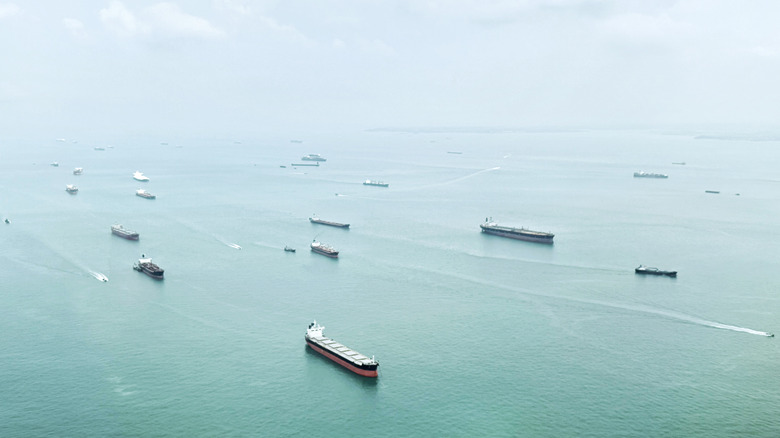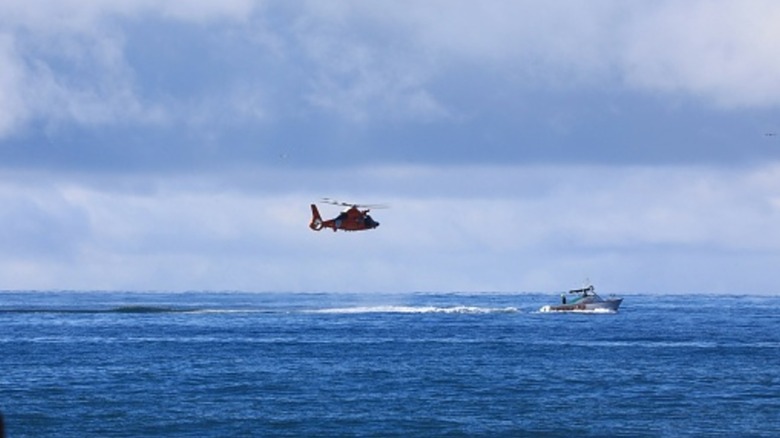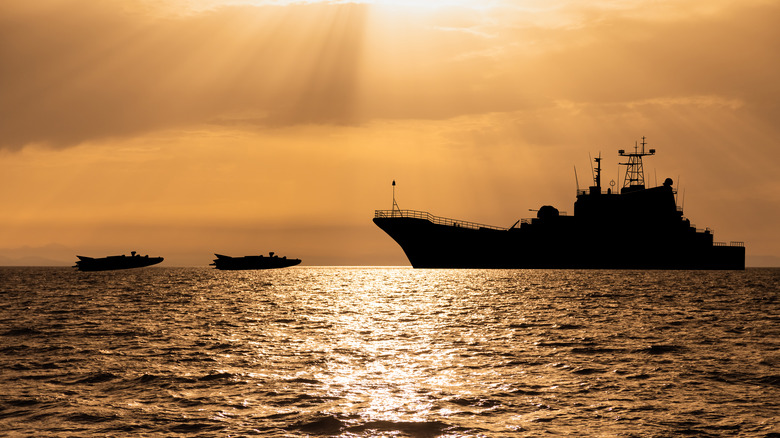The Myth About Laws In International Waters You Probably Fell For
Say you wanted to do something illegal — where would be the best place to go? In the imaginations of many people, probably the high seas, or International Waters, where the laws and rules that govern life and land cease to exist.
You might imagine yourself charting a vessel, stocking it with a bar, roulette, and blackjack tables, and a colorful array of ludicrously cash-rich high rollers and heading to the horizon, where away from land you could create your own lawless casino, as would happen off the coast of California in the early part of the 20th century. Or if you are a music lover, you might consider heading out to sea to set up your own pirate radio station, such as the famous Radio Caroline that operated from a boat off the southern coast of Britain in the 1960s and 1970s, and which inspired the 2009 Richard Curtis movie "The Boat that Rocked."
But if you were to pull anything like that today, you might run into more trouble than you bargained for. That's because in recent decades the nations of the world have largely agreed on tactics to police International Waters and processes by which to prosecute those who commit crimes there — in theory at least.
The Law of the Sea
Historically, the maritime territory of sovereign nations has been ascertained as existing up to a certain distance from the nation's coastline. When offshore gambling was occurring off the Californian coast, for example, state law was only enforceable up to three miles offshore, meaning just a comparatively short boat ride could take illegal gamblers out of the clutches of the police.
However, the idea that getting to International Waters means you are in the figurative Wild West when it comes to the law isn't generally the case today. This is because of the United Nations Convention on the Law of the Sea, which was signed into existence on December 10, 1982.
The convention defines the territory of sovereign nations as existing up to 12 miles offshore and makes it law that foreign vessels must be granted "innocent passage" through such waters as long as they do not engage in certain prohibited activities. It also defines further boundaries in which nations are permitted to harvest resources such as fish and oil. And when it comes to International Waters, the convention is clear: vessels remain bound by the laws of the nation in which they are registered. For example, were a murder to occur on a boat that had departed from and been registered in France, the perpetrator could be charged with murder in France just as readily as if they had committed the crime in the center of Paris.
The sea still attracts crime
Nevertheless, International Waters still harbor a great deal of maritime crime. Maritime piracy, for example, is not a romantic notion or a time of the past: it continues today in several regions of the world, most often on trade routes in Southeast Asia, the Horn of Africa, and the Red Sea. Modern piracy is today particularly associated with Somalia. It is believed around 13,000 attempted pirate attacks have taken place across the world over the last three decades, though numbers have been decreasing since a peak in maritime piracy in the late 1990s. To avoid capture, modern pirates spend almost their entire lives at sea.
Drug and human trafficking are other crimes which often take place at sea. They are often the work of dangerous organized crime cartels, with the United Nations Office on Drugs and Crime Global Maritime Crime Programme making concerted efforts to increase maritime security across the globe. More recently, geopolitical tensions have seen accusations of sabotage at sea, with underwater internet and power cables being attacked. In response, NATO has increasingly employed "sea drones" to protect its underwater infrastructure.


